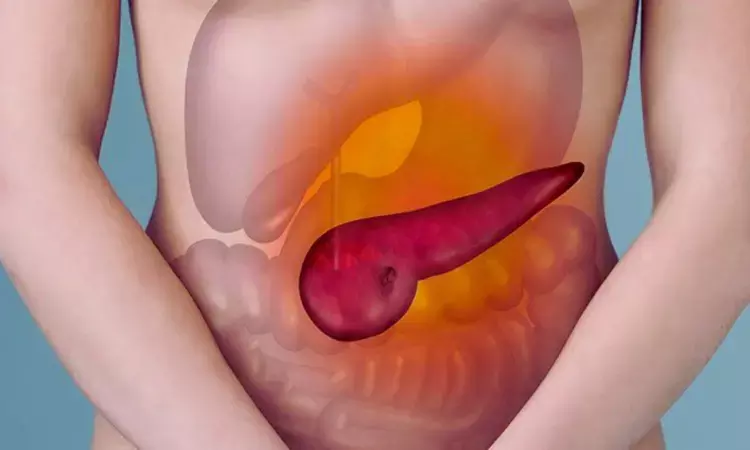- Home
- Medical news & Guidelines
- Anesthesiology
- Cardiology and CTVS
- Critical Care
- Dentistry
- Dermatology
- Diabetes and Endocrinology
- ENT
- Gastroenterology
- Medicine
- Nephrology
- Neurology
- Obstretics-Gynaecology
- Oncology
- Ophthalmology
- Orthopaedics
- Pediatrics-Neonatology
- Psychiatry
- Pulmonology
- Radiology
- Surgery
- Urology
- Laboratory Medicine
- Diet
- Nursing
- Paramedical
- Physiotherapy
- Health news
- Fact Check
- Bone Health Fact Check
- Brain Health Fact Check
- Cancer Related Fact Check
- Child Care Fact Check
- Dental and oral health fact check
- Diabetes and metabolic health fact check
- Diet and Nutrition Fact Check
- Eye and ENT Care Fact Check
- Fitness fact check
- Gut health fact check
- Heart health fact check
- Kidney health fact check
- Medical education fact check
- Men's health fact check
- Respiratory fact check
- Skin and hair care fact check
- Vaccine and Immunization fact check
- Women's health fact check
- AYUSH
- State News
- Andaman and Nicobar Islands
- Andhra Pradesh
- Arunachal Pradesh
- Assam
- Bihar
- Chandigarh
- Chattisgarh
- Dadra and Nagar Haveli
- Daman and Diu
- Delhi
- Goa
- Gujarat
- Haryana
- Himachal Pradesh
- Jammu & Kashmir
- Jharkhand
- Karnataka
- Kerala
- Ladakh
- Lakshadweep
- Madhya Pradesh
- Maharashtra
- Manipur
- Meghalaya
- Mizoram
- Nagaland
- Odisha
- Puducherry
- Punjab
- Rajasthan
- Sikkim
- Tamil Nadu
- Telangana
- Tripura
- Uttar Pradesh
- Uttrakhand
- West Bengal
- Medical Education
- Industry
Plozasiran Reduces Triglycerides and Pancreatitis Risk in Persistent Chylomicronemia Patients: NEJM

A new study published in the New England Journal of Medicine highlighted the effectiveness of plozasiran, a small interfering RNA, in managing persistent chylomicronemia which is associated with recurrent acute pancreatitis and elevated triglycerides. The phase 3 trial investigated the efficacy of plozasiran in lowering triglycerides and reducing the incidence of acute pancreatitis which yielding promising results for patients with this condition.
75 patients with persistent chylomicronemia were randomly assigned to receive either 25 mg or 50 mg of plozasiran or a placebo. This was administered subcutaneously every 3 months over 12 months with the primary goal to assess the median percentage change in fasting triglyceride levels at the 10-month mark. Secondary goals included measuring fasting triglyceride and apolipoprotein C-III level changes at 10 and 12 months, along with tracking the incidence of acute pancreatitis.
The result found significant reduction in fasting triglyceride levels in patients treated with plozasiran when compared to the placebo group. At baseline, the participants had a median triglyceride level of 2044 mg per deciliter. After 10 months, the group receiving 25 mg of plozasiran saw an 80% median reduction in triglyceride levels, while the 50 mg group underwent a 78% reduction. The participants in the placebo group saw only a 17% decrease.
The secondary outcomes further brought out the benefits of plozasiran. The occurrence of acute pancreatitis was lower in patients treated with plozasiran. The individuals who were receiving the drug had a reduced odds ratio (0.17) that indicated an 83% lower chance of developing pancreatitis when compared to the placebo group.
Adverse events, such as abdominal pain, nasopharyngitis, headache, and nausea, were reported with similar frequency across all groups. However, severe and serious adverse events were less common in the plozasiran-treated patients when compared to the individuals who were receiving placebo. Hyperglycemia was observed in some patients with pre-existing diabetes or prediabetes by indicating that careful monitoring may be necessary for certain patient groups.
Overall, this phase 3 trial demonstrated that plozasiran offers a significant benefit in managing persistent chylomicronemia, with marked reductions in triglyceride levels and a lower incidence of acute pancreatitis. While the treatment was generally well-tolerated, ongoing monitoring for hyperglycemia in certain populations is highly imperative.
Source:
Watts, G. F., Rosenson, R. S., Hegele, R. A., Goldberg, I. J., Gallo, A., Mertens, A., Baass, A., Zhou, R., Muhsin, M., Hellawell, J., Leeper, N. J., & Gaudet, D. (2024). Plozasiran for Managing Persistent Chylomicronemia and Pancreatitis Risk. In New England Journal of Medicine. Massachusetts Medical Society. https://doi.org/10.1056/nejmoa2409368
Neuroscience Masters graduate
Jacinthlyn Sylvia, a Neuroscience Master's graduate from Chennai has worked extensively in deciphering the neurobiology of cognition and motor control in aging. She also has spread-out exposure to Neurosurgery from her Bachelor’s. She is currently involved in active Neuro-Oncology research. She is an upcoming neuroscientist with a fiery passion for writing. Her news cover at Medical Dialogues feature recent discoveries and updates from the healthcare and biomedical research fields. She can be reached at editorial@medicaldialogues.in
Dr Kamal Kant Kohli-MBBS, DTCD- a chest specialist with more than 30 years of practice and a flair for writing clinical articles, Dr Kamal Kant Kohli joined Medical Dialogues as a Chief Editor of Medical News. Besides writing articles, as an editor, he proofreads and verifies all the medical content published on Medical Dialogues including those coming from journals, studies,medical conferences,guidelines etc. Email: drkohli@medicaldialogues.in. Contact no. 011-43720751


